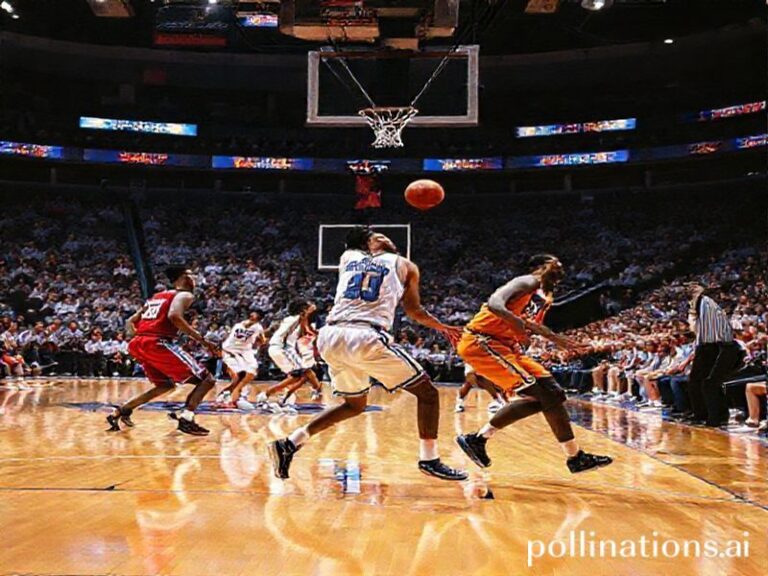Global Scoreboard: How the WTA Rankings Quietly Rule the World Between Mondays
PARIS – In the gilded corridor of the Palais des Congrès, where the WTA rankings are ceremonially updated each Monday like a corporate earnings call with better jawlines, a small army of statisticians, publicists, and caffeinated interns feed the algorithm that decides who, precisely, is the best at whacking a fuzzy yellow sphere until someone cries into their electrolyte drink. The numbers flicker on screens from Singapore to São Paulo, and for roughly forty-eight hours the planet’s geopolitical anxieties—war, inflation, the fact that your toaster now requires a firmware update—are briefly eclipsed by a spreadsheet with twelve decimal places.
Across time zones, the implications are as varied as the excuses for missing practice. In Beijing, state broadcasters splice the list into nationalist morality tales: a rise by Zheng Qinwen is evidence of socialist athletic superiority; a slip is quietly blamed on gluten. Meanwhile in Warsaw, Iga Świątek’s continued tenancy at No. 1 is discussed in parliament with the solemnity usually reserved for coal subsidies. Somewhere in Belgrade, a grandmother lights a candle for the days when “politics didn’t decide seedings,” which is charming but historically illiterate.
The rankings are, of course, a marvelous lie we all agree to pretend is gospel. They insist that human chaos can be reduced to neat Cartesian coordinates—an illusion every bit as consoling as calorie counts on a menu that also sells deep-fried tiramisu. Players chase points the way hedge-fund interns chase NFTs in 2021: feverishly, blindly, and with the creeping suspicion that the house (i.e., the calendar) is rigged. A first-round loss in Cincinnati can erase a month of Balkan clay-court heroics; a triumphant run in Guadalajara may catapult a teenager past veterans who’ve spent longer in physio than the kid has spent paying taxes.
Yet the rankings do perform a civic service: they give nations something harmless to argue about. When Tunisia’s Ons Jabeur dips three places, café philosophers in Tunis diagnose systemic failure in everything from school lunches to foreign policy. When Coco Gauff jumps, American cable hosts race to credit whichever president they already liked. It’s cheaper than a proxy war and only slightly less bloody.
There is also the matter of passports. A Bulgarian player lingering at No. 75 secures more consular appointments than the ambassador, while a Kazakh wildcard suddenly ranked 42 enjoys expedited visas, sponsorship from a state-run uranium concern, and the vague promise of a subsidized apartment with working radiators—luxuries not extended to the poets currently in exile. The WTA’s algorithm may be color-blind, but the border guards who scrutinize it are not.
Sponsors, those shy nocturnal creatures, follow the rankings like truffle pigs. A jump from 30 to 19 is worth more in fragrance endorsements than an entire MFA. Players know this, so they schedule events with the strategic cunning of arms dealers. A 250-point tournament in Transylvania suddenly looks irresistible when you’re 48 points from a career high and your agent just whispered “Chanel pre-campaign.”
And then there is the retirement asterisk—an invisible ink that appears beside a name the moment the athlete contemplates life after tennis. One week you’re defending semifinal points in Rome; the next you’re on a podcast discussing sustainable athleisure and pretending you always loved accounting. The rankings, merciless as gravity, keep falling like guillotines until the player officially retires and ascends to the commentary booth, where they’ll spend the next decade second-guessing teenagers who now occupy their former coordinates.
By Wednesday, the world has moved on. The algorithm recalibrates, the candle in Belgrade gutters, the spreadsheets refresh, and the planet returns to its regularly scheduled catastrophes. But somewhere a twelve-year-old in Lagos is already memorizing the top hundred, dreaming in integers. History suggests she’ll learn what the rest of us refuse to acknowledge: the rankings are neither prophecy nor verdict. They are merely today’s weather report in a storm we agreed to call destiny.







